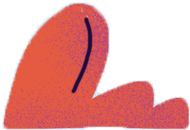By Yacine Djibo, Founder & Executive Director of Speak Up Africa.
It has now been a year since the World Health Organization (WHO) declared COVID-19 as a Public Health Emergency on an international scale, yet Africa’s second wave of the virus and a number of emerging variants has renewed concerns worldwide. On the continent, COVID-19 fatalities have surpassed 100,000 and the African Union reports almost 4 million citizens have been infected by COVID-19 since its outbreak.
The world is currently facing a global crisis in the form of COVID-19, but in Africa, the stakes are significantly higher. Public health systems have long been burdened by the toll of diseases like malaria, HIV/AIDS, tuberculosis and neglected tropical diseases. A lack of personal protective equipment (PPE) and funding continues to be a challenge, and now COVID-19 is truly exposing the cracks in the system. As we begin to focus on one disease, there is a real chance that others are side-lined, which will harm us more. COVID-19 not only poses an immediate threat to people living in Africa, but it also threatens the future health of the continent by weakening its health systems, and Africans’ trust in them, to near-collapse. By maintaining the best preventative measures against COVID-19 and implementing large-scale vaccination programmes, we can fight this pandemic effectively and ensure our health systems are strengthened for future generations.
Speak Up Africa’s Stay Safe Africa campaign, adopted by the Confederation of African Football and Globesight among other partners, seeks to protect communities from COVID-19 by promoting proven prevention methods, including handwashing, wearing masks and social distancing. These measures have proven to be highly effective in preventing the spread of the virus this past year, therefore it is critical we continue to uphold them.
The WHO-led COVAX initiative shipped almost 90 million COVID-19 vaccines doses to Africa in February and with several African countries set to start administering the vaccine in the coming months, this is set to be the continent’s largest ever vaccination campaign. However, Africa faces several barriers to gaining equitable access to the vaccines currently being administered in many other regions. While certain countries including Senegal and South Africa have made progress in rolling out vaccinations, the continent is falling behind on implementing COVID-19 vaccination programmes. Many nations have hoarded vaccines, purchasing far more doses than they need. Not only has this delayed access for citizens in many developing countries due to shortages, but it has also resulted in a higher cost for vaccines which has made purchasing enough doses simply unfeasible for many African countries.
Yet it is not only the financial aspect holding back vaccination programmes in Africa. There is the serious issue of anti-vaccine sentiment as misinformation has been perpetuated online and via social media and messaging platforms. False messages have been spread with the aim of influencing the public to reject the vaccines offered to them, even though immunization continues to be a simple, safe and effective method of prevention that has protected millions from Africa’s most deadly diseases. Just last year, the African continent was declared free from wild polio thanks to immunization efforts; we must now follow a similar path to eliminate COVID-19.
The role of accurate and factual reporting to address misinformation and mistrust of crucial interventions is more important than ever. Speak Up Africa’s new African Voices of Science initiative seeks to address these issues. Collaborating with a host of established African scientists, researchers and health experts, our latest project aims to generate an open public discourse on key health issues in Africa. Furthermore, thanks to the support of GAVI, Speak Up Africa engages national and community leaders in francophone Africa as immunization champions to relay key messages on the COVID19 vaccine within their communities.
The fight against COVID-19 is not yet over but moving forwards, one thing is clear: Regular and direct communication on preventative measures and evidence-based interventions, such as handwashing, correctly wearing a facemask and immunization, are absolutely vital to help prevent the spread of COVID-19 in Africa and ensure that we come out of this crisis stronger than ever.
Read more articles
- Speak Up Africa annonce l’initiative des Voix africaines de la science pour soutenir la R&D en Afrique
- Speak Up Africa announces new African Voices of Science initiative to champion R&D in Africa
- L’incontournable défi des systèmes de santé en Afrique
- Africa’s quest for immunity: why access to routine immunization is so crucial
- Journée mondiale de l’eau 2021 : Pour une fois, parlons d’assainissement
- World Water Day 2021: Let’s all talk about sanitation for once
- COVID-19 et l’Afrique : Que nous réserve l’avenir ?
- Why is the fight against Neglected Tropical Diseases vital to the fight against COVID-19?
- Renforcer la communauté scientifique africaine pour l’avenir du continent
- Strengthening the African scientific community for the future of the continent
- COVID-19 and Neglected Tropical Diseases: why we must fight them in tandem
- COVID-19 is highlighting the importance of improving sanitation on the continent
- Fighting COVID-19 is a team effort, so which side are you on?
- Our youth have the power to keep Africa safe from COVID-19
- Comment le secteur privé africain peut-il contribuer à l’élimination du paludisme en Afrique ?
- Rajah Sy on people with disabilities – “Responses to COVID-19 must be inclusive. »”
- Conversation avec l’OMS sur les MTN dans le contexte de la COVID-19
- A Conversation with WHO on Neglected Tropical Diseases in the context of COVID-19
- Virtual Bridges: A Conversation with AMCOW
- Conversation avec AMCOW : Ce qu’il faut retenir
- En finir avec la négligence pour accélérer le progrès : comment la lutte contre les maladies tropicales négligées peut aider à contenir la propagation de la Covid-19 ?
- Ending neglect to drive progress: How controlling neglected tropical diseases can curb COVID-19
- Pour combattre la COVID-19 nous avons besoin d’un petit peu d’argent pour le changement
- To fight COVID-19 the continental response asks A Little Change for Change!
- Special Olympics Senegal to deliver face masks to athletes in partnership with Speak Up Africa and Tongoro
- Pour les protéger du COVID-19 Special Olympics Sénégal distribue des masques à ses athlètes
- African Legends embrace #19KickupsAgainstCovid19 in support of Stay Safe Africa campaign
- Les stars africaines du ballon rond s’engagent pour la campagne « Restons Prudents Pour l’Afrique »
- 300 dispositifs de lavage des mains distribués dans des écoles sénégalaises pour lutter contre le COVID-19
- 300 handwashing stations installed in schools to keep Senegal safe from COVID-19
- La CAF fait équipe avec Speak Up Africa pour protéger un milliard d’africains contre le COVID-19
- CAF teams up with Speak Up Africa to protect one billion Africans against COVID-19
- Le COVID-19 nous démontre qu’en Afrique il est urgent de renforcer les systèmes de santé pour protéger les communautés
- COVID-19 highlights the urgent need for the African continent to protect its health systems and communities
- Restons prudents: une campagne exhortant tous les africains à jouer leur rôle contre COVID-19
- Stay Safe Africa: A campaign urging all Africans to play their part against COVID-19
- Mosquito’s physical proximity
- As Africa battles COVID-19, over 300 million Africans beg for clean water



